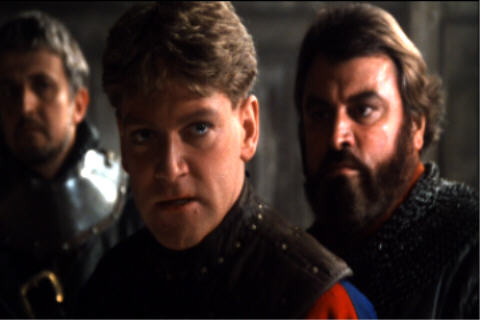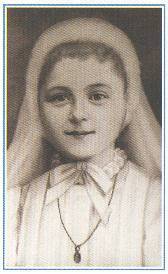Review of Rebuild My Church: God’s Plan for Authentic Catholic Renewal—by Alan Schreck.
D r. Schreck—a Franciscan University theology professor—has written a book on Church renewal as a way of “telling the ‘story’ of Catholicism.” In Rebuild My Church, Schreck explains what renewal is and serves up a fascinating account of renewal figures and movements in Church history. He also gives a prescription for what he believes will bring about the authentic renewal of today’s Church.
r. Schreck—a Franciscan University theology professor—has written a book on Church renewal as a way of “telling the ‘story’ of Catholicism.” In Rebuild My Church, Schreck explains what renewal is and serves up a fascinating account of renewal figures and movements in Church history. He also gives a prescription for what he believes will bring about the authentic renewal of today’s Church.
The Church, Schreck writes, is in a constant state of renewal as she responds to the Holy Spirit in each age and situation. But what is “renewal?” It’s the “revitalization of the church, making her ‘new again’ or ‘like new’ in her practice, spirit, or ideals.” Authentic renewal, he says, involves the rediscovery and reappropriation of elements that truly belong to the church as it has been instituted by Jesus Christ and that therefore strengthen her and enrich her.” It emphasizes the rediscovery and stirring up of authentic aspects of the Church’s nature that have been neglected or forgotten. And it involves revitalizing the Church’s fervor in living her life and carrying out the mission Christ gave her. Authentic renewal, Schreck explains, has unfolded in history through the power and guidance of the Holy Spirit, which is “the church’s fountain of youth.”
How is the Church renewed? Schreck says the foundation of renewal is repentance and prayer. He explains that “[t]here is no authentic renewal without the pursuit of and growth in holiness of the church’s members, and there is no growth in holiness without repentance from sin and heartfelt commitment to break from sin by God’s grace.” And prayer, “which ushered in the first sending of the Holy Spirit upon the church . . . will precede the renewal of the church in the future.”
The most interesting part of Schreck’s book is his section of vignettes of individuals, communities, and Catholic movements in Church history that served, under the inspiration of the Holy Spirit, as agents of authentic renewal. For instance, he explains how monasticism was the most important agent of renewal of the early Church. As the monastic movement developed, Benedictine monasteries became centers of Christian life and “of the preservation and transmission of culture for decades and even centuries.” Schreck also gives fascinating accounts of the accomplishments of Catholic spiritual giants such as St Dominic, St Francis, St Catherine of Siena, St Teresa of Avila, St Philip Neri, and St John Bosco. Their lives, he maintains, are proof that throughout history, “[w]henever the church experiences difficulty, the faithfulness of God is revealed in those who respond to his grace and become agents of renewal.”
But God’s grace at work in particular individuals isn’t enough to bring about renewal. “In order for a grace or charism to renew the church, it must be recognized, accepted, and approved by the proper ecclesial authorities, the church’s pastors.” Otherwise, bearers of charisms can divide or weaken the Church, Schreck explains, citing Montanus (the founder of the Montanist heresy) and Luther as examples. Schreck also cites ecclesial reforms instituted during the reigns of Pope Gregory VII, Pope Innocent III, Pope Paul III, and Pope Leo XIII as instances of Church leadership fostering renewal.
Schreck ends with advice for the authentic renewal of today’s Church. For one thing, he favors the ordinary form of the liturgy established by Vatican II. But, for Schreck, whether it’s Latin Mass or “a vernacular Mass with guitars or keyboard accompanying contemporary music . . . all magisterially approved forms of liturgical worship ought to be accepted, with room for the Holy Spirit to act and guide the church, enabling us to ‘worship in spirit and truth’ (John 4:24).” Schreck also writes that “one characteristic of church renewal today is that God is acting to renew the whole church, across denominational lines and boundaries.” Thus, he concludes, ecumenism has an important part to play.
“This means that Catholics can share perspectives and wisdom concerning renewal with other Christians, as well as learn from other Christians approaches that may help us in our quest for renewal.” The Vatican II liturgical reforms and ecumenical emphasis, Schreck writes, are forms of renewal endorsed by Popes John Paul II and Benedict XVI. Most importantly, for authentic renewal, “[a]ll members of the church must strive tirelessly for holiness and not settle for anything less.” Such holiness is achieved through both personal and liturgical prayer. (Here, Schreck perhaps should have emphasized the important role that frequent and reverent reception of the Eucharist—the source and summit of the Christian life—plays in the pursuit of holiness.) Schreck also argues that the Church needs to embrace personal charisms, which include prophesy and glossolalia (speaking in tongues), that the Holy Spirit gives individuals for the purpose of renewal. And Schreck calls for an increase in lay involvement and leadership. Finally, Schreck explains that the effective renewal of the church will ultimately be measured by charity, which Pope Benedict calls “the synthesis of the entire law.” Schreck says that any renewal that doesn't result in greater love of God is of dubious value.
Throughout his book, Schreck chooses to not capitalize the “C” in “Church.” He frequently quotes papal encyclicals, Church councils, and official Church documents, which uniformly capitalize “Church” when speaking of the Catholic Church; when he does, he uses a capital “C.” But Schreck uses a lowercase “c” when he himself refers to the Catholic Church. Perhaps he does this based on a well-meaning ecumenical sensitivity, but it is nevertheless distractingly ambiguous. G. K. Chesterton said it best in The Catholic Church and Conversion:
[T]he first fallacy about the Catholic Church is the idea that it is a church . . . it is simply a historical fact that the Roman Church is the Church and is not a sect. Nor is there anything narrow or unreasonable in saying that the Church is the Church. . . . As a matter of fact, in the case of things so large, so unique and so creative of the culture about them as were the Roman Empire and the Roman Church, it is not controversial but simply correct to confine the one word to the one example. Everybody who originally used the word “Empire” used it of that Empire; everybody who used the word “Ecclesia” used it of that Ecclesia. . . . the Catholic Church stands alone. It does not merely belong to a class of Christian churches. It does not merely belong to a class of human religions. Considered quite coldly and impartially, as by a man from the moon, it is much more sui generis than that.
But this is minor and doesn’t outweigh the obvious value of Schreck’s book. His historical narrative is very helpful, and his essential prescription for renewal—repentance, prayer, and growth in personal holiness—is sound. While Schreck is perhaps less convincing in his endorsement of certain aspects of charismatic Catholicism, such as glossolalia and charismatic worship, Rebuild My Church is recommended to all Catholics who want to learn more about how the Holy Spirit raises up ordinary individuals to renew the Church when she needs it most.
 .
.


























 This blog is dedicated to bringing you free orthodox Catholic audio. If you have a tip or would like to report a broken link, please e-mail me by clicking the link above.
"Faith then cometh by hearing; and hearing by the word of Christ."
Rom 10:17(DRV)
This blog is dedicated to bringing you free orthodox Catholic audio. If you have a tip or would like to report a broken link, please e-mail me by clicking the link above.
"Faith then cometh by hearing; and hearing by the word of Christ."
Rom 10:17(DRV)